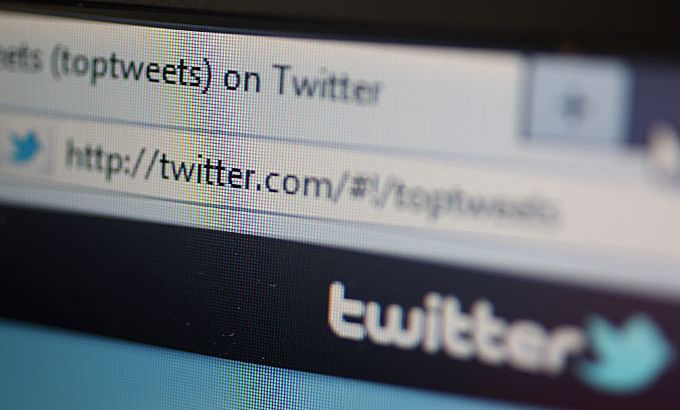
Taking on Twitter over hate speech
A Jewish group’s lawsuit sets free expression, privacy, online accountability and state control on a collision course.
A Jewish group in France is taking Twitter to court demanding the micro-blogging site name the users who posted anti-Jewish and racist tweets.
Twitter is being accused of failing to implement safeguards against racism – an issue that has effectively put freedom of expression, personal privacy, online accountability and state control on a collision course.
The Paris office of the French Union of Jewish Students only has five permanent staff and relies entirely on donations.
|
“We are not angry at Twitter. We are angry that they don’t act responsibly and that they don’t want to follow the French law.” – Elie Petit, the vice-president of the French Union of Jewish Students |
But the group is taking on one of the giants of the internet, Twitter, and they expect to win.
They want the French high court to order the micro-blogging site to reveal the names of people who posted anti-Semitic tweets so they can be prosecuted.
The controversy began in October with one or two people posting under #agoodjew which grew into a wave of hateful messages under #adeadjew, and becoming the third most-viewed subject on Twitter in France.
The union kept a record of the offensive tweets and gave them to Twitter, which agreed to remove them last November.
It is a worrying sign, mimicking what is happening on the streets. Over the past year the number of anti-Semitic acts in France has doubled.
After the hashtag ‘if my son is gay’ trended on Twitter for two days, Najat Belkacem-Vallaud, the French minister of women’s rights, called on the site to censor hate speech.
|
“Here what the Jewish students’ union is trying to do is pursue what’s a law in France, and it’s simply not to get people’s names but to get the information they need to enforce legal rights. I think that’s reasonable. I don’t expect Twitter proactively to monitor this kind of thing but it certainly should comply with any order of the French court.” – Carl Gardner, the editor of headoflegal.com |
Belkacem-Vallaud said: “I want, without prejudice to any legal action, to call upon Twitter’s sense of responsibility so that it can contribute to the prevention and the avoidance of misbehaviour like this.”
The anonymity provided by the internet means hate speech is harder to police, and it will need fresh legal thinking.
Asked for a comment, Twitter repeated its standard statement: “Twitter does not mediate content. If we are alerted to content that may be in violation of our terms of service, we will investigate each report.”
On its own blogsite, Twitter says it cannot possibly filter out content before it appears. Instead, it says: “We will withhold specific content only when required to do so in response to what we believe to be a valid and applicable legal request. Any content we do withhold is clearly identified to users in that country as being withheld. And we are now able to make that content available to users in the rest of the world.”
Tuesday’s case could force Twitter to re-examine how it operates. A ruling is expected within the next two weeks.
Joining the Inside Story discussion with presenter Shiulie Ghosh are guests: Elie Petit, the vice-president of the French Union of Jewish Students; Danny Schechter, an independent filmmaker, author on media issues and the editor of newsdissector.net; and Carl Gardner, a former government lawyer and the editor of the legal news website headoflegal.com.
|
“This is a very slippery slope. You begin to designate certain people guilty of hate speech by removing what they have to say or giving their names and the like. And you create an environment which is intimidating of all free speech, where people won’t express themselves fully.” Danny Schechter, the editor of newsdissector.net |
High-profile legal action against Twitter:
- In May 2011, British footballer Ryan Giggs threatened to sue Twitter, after his extramarital affair was revealed in tweets despite his efforts to gag the press
- In February 2012, the Brazilian government filed a lawsuit demanding twitter suspend the accounts of users who were tipping off drivers about police roadblocks and speed traps
- Also last February, an Australian man sued Twitter after a tweet from a TV personality Marieke Hardy linked back to a post wrongly accusing him of being the author of a hate blog
- In December 2012, the UK’s former Conservative party treasurer Alistair Lord McAlpine announced he would go after Twitter users for wrongly accusing him of being a child molester.